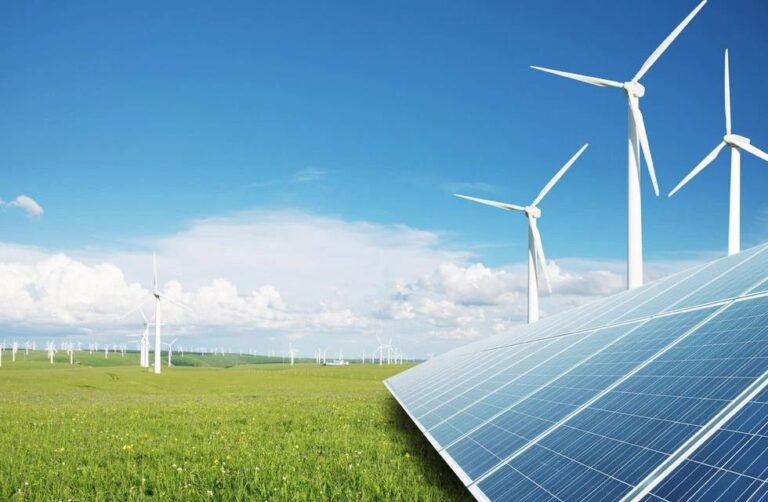Sustainable energy is a term used to refer to renewable energy sources that are environmentally conscious and have little or no impact on the environment. In other words, sustainable energy is about finding ways to power our homes and businesses without harming the planet. There are many forms of sustainable energy, including solar, wind, hydro, and geothermal. Each has its own pros and cons, but all are cleaner and more efficient than traditional fossil fuels like coal and natural gas. If you’re interested in learning more about sustainable energy, read on for a closer look at each type of renewable energy.
What is sustainable energy?
Sustainable energy is renewable energy that can be replenished at the same rate or faster than consumed. Solar, wind, and hydropower are all sustainable energy sources. Green Energy is a crucial part of combating climate change and promoting global economic growth.
The different types of sustainable energy
There are many types of sustainable energy, including solar, wind, water, geothermal, and biomass. Each has its own advantages and disadvantages, but all are renewable and environmentally friendly.
Solar energy is one of the most popular forms of green energy. Solar panels convert sunlight into electricity, which can power homes and businesses. Solar energy is clean and renewable, but it can be expensive to install solar panels.
Wind energy is another form of renewable energy. Wind turbines convert the kinetic energy of the wind into electricity. Wind energy is renewable and environmentally friendly but can be noisy and disruptive to birds and other wildlife.
Water power is another type of renewable energy. Water wheels or turbines can be used to generate electricity from the flow of a river or waterfall. Hydropower is renewable and environmentally friendly but can adversely affect local ecosystems if not done correctly.
Geothermal energy comes from heat deep within the earth’s surface. Geothermal power plants use this heat to generate electricity. Geothermal energy is renewable and environmentally friendly, but it can be expensive to develop geothermal resources.
Biomass energy comes from organic matter such as wood, crops, or animal waste. Biomass can generate electricity or produce biofuels such as ethanol or biodiesel. Biomass is renewable and environmentally friendly but can compete with food production if not managed properly.
Why is sustainable energy essential?
Sustainable energy is essential for many reasons. It helps to protect our environment, conserve natural resources, and save money.
Green energy sources like solar and wind power are renewable, meaning they won’t run out like fossil fuels. This is important for the long-term health of our planet. Green energy is also often less damaging to the environment than traditional energy sources.
Conserving natural resources is another critical reason to use Green energy. Green energy technologies can help us use resources more efficiently so that we don’t have to deplete them as quickly. This is especially important as we face increasing demands on our limited resources due to population growth and climate change.
Finally, green energy can save you money! Investing in green energy technologies can help you reduce your monthly energy bills and make money through government incentives and programs like net metering. In the long run, green energy is an intelligent investment that will pay off for you and the planet.
How can we make the switch to sustainable energy?
As the world continues to grapple with the issue of climate change, Renewable energy is becoming an increasingly important topic of discussion. There are many different ways to generate sustainable energy, but most often, it refers to the energy generated from renewable sources.
There are several reasons why switching to sustainable energy is a good idea. For one, it can help reduce our reliance on fossil fuels, which significantly contribute to greenhouse gas emissions. Renewable energy is often more cost effective than traditional forms of energy, and it can help create jobs in the clean energy sector.
So how can we make the switch to Renewable energy? One way is by investing in renewable energy sources like solar and wind power. Another way is using more efficient technologies like LED lights and hybrid cars. And finally, we can all do our part by making small changes in our daily lives to save energy.
What are the benefits of using sustainable energy?
There are many benefits of using sustainable energy. Perhaps the most obvious benefit is that it is a renewable resource that will never run out. Additionally, Renewable energy is often cheaper than traditional energy sources, and it has much lower emissions of greenhouse gases and other pollutants.
Renewable energy can come from various sources, including solar, wind, water, geothermal, and biomass. And there are various ways to use sustainable energy, from powering homes and businesses to powering entire cities. The potential for sustainable energy is nearly limitless, making it a very attractive option for the future.
Are there any drawbacks to using sustainable energy?
There are a few potential drawbacks to using Renewable energy, but the benefits often outweigh them. For example, sustainable energy sources like solar and wind can be less reliable than traditional fossil fuels because they rely on weather conditions. They also tend to have higher upfront costs, often offset by government incentives and long-term savings on fuel and maintenance costs. Additionally, some sustainable energy technologies require significant land or water resources, which could impact local ecosystems. Overall, the advantages of using sustainable energy typically outweigh any potential disadvantages.
Conclusion
Sustainable energy is a term used to describe renewable energy that can meet our needs without damaging the environment or depleting natural resources. Renewable energy includes solar, wind, water, and geothermal power and biomass energy from crops and waste. While sustainable energy has become more prevalent in recent years due to increasing concerns about climate change, it still only accounts for a small fraction of the world’s total energy supply.
